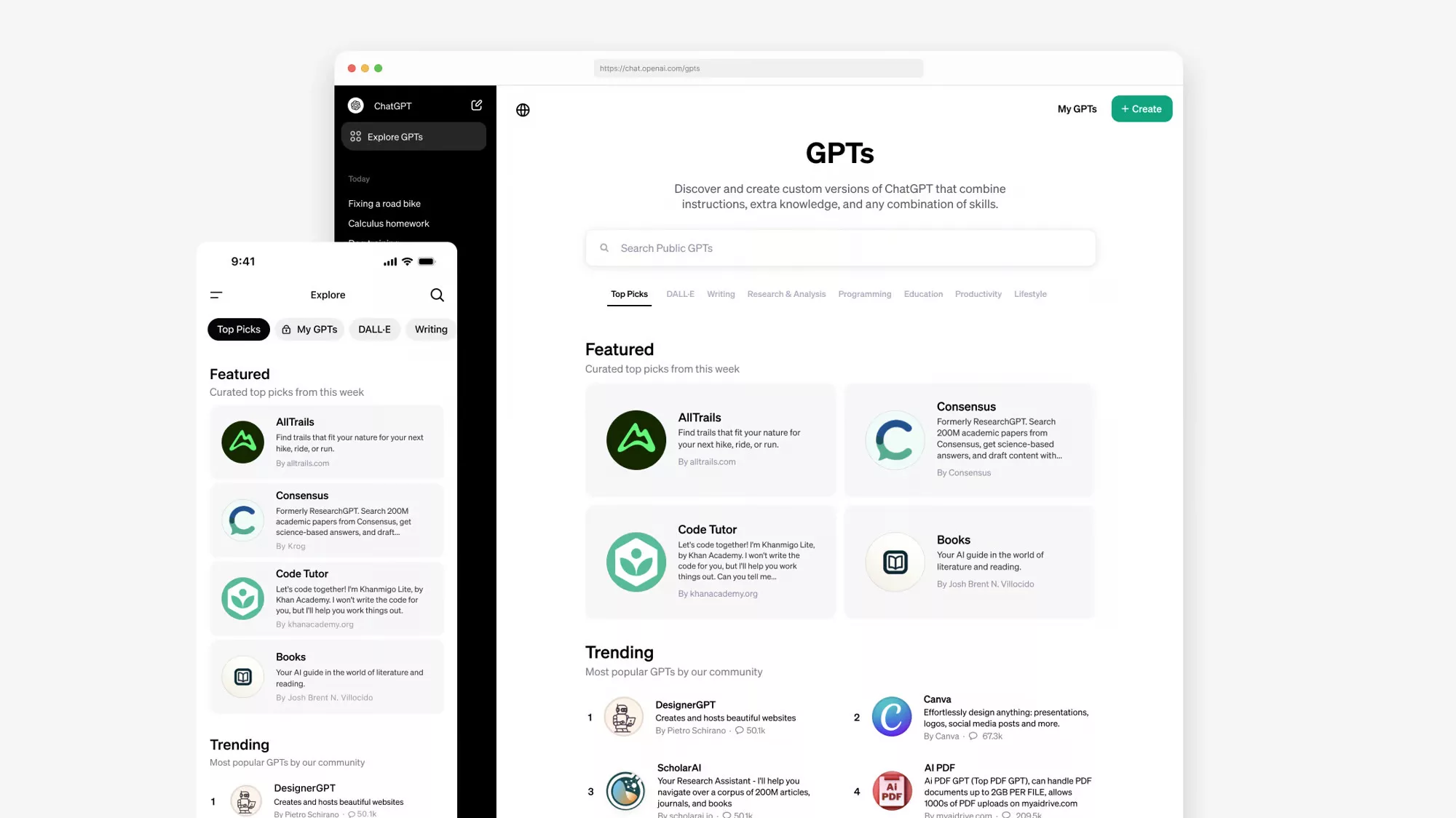OpenAI launches GPT Store, its long-awaited marketplace for custom chatbots
After a long wait, OpenAI has officially launched the GPT Store, a revolutionary marketplace for custom-made chatbots, that seamlessly integrates into the widely acclaimed ChatGPT platform. This significant milestone comes on the heels of the GPT Builder program announcement in November, revealing a staggering achievement of over 3 million custom chatbots, referred to as GPTs, crafted by users. The GPT Store serves as a transformative platform, enabling users to not only share and discover bespoke GPTs but also to monetize their creations.
The journey towards the GPT Store’s inauguration commenced with the introduction of the GPT Builder program in November. This program empowered users to create tailor-made chatbots designed for specific tasks, ranging from suggesting synonyms to teaching mathematics and designing stickers. The response from users has been nothing short of enthusiastic, with the creation of over 3 million GPTs since the program’s inception. Users have harnessed the versatile capabilities of GPTs, paving the way for the GPT Store’s much-anticipated launch. And now, it is finally here, and will be made available soon for ChatGPT Enterprise customers.

“It’s been two months since we announced GPTs, and users have already created over 3 million custom versions of ChatGPT. Many builders have shared their GPTs for others to use. Today, we’re starting to roll out the GPT Store to ChatGPT Plus, Team and Enterprise users so you can find useful and popular GPTs. Visit chat.openai.com/gpts to explore,” OpenAI said in an official announcement.
Initially slated for a November debut, the GPT Store encountered delays, pushing its release to December and subsequently to January. Despite these delays, the platform’s unveiling was met with heightened anticipation, signifying a pivotal expansion of OpenAI’s offerings beyond the confines of what the company directly builds for its customers. The delay was attributed to ongoing improvements based on customer feedback and internal adjustments within the company.
Read more at thetechportal.com